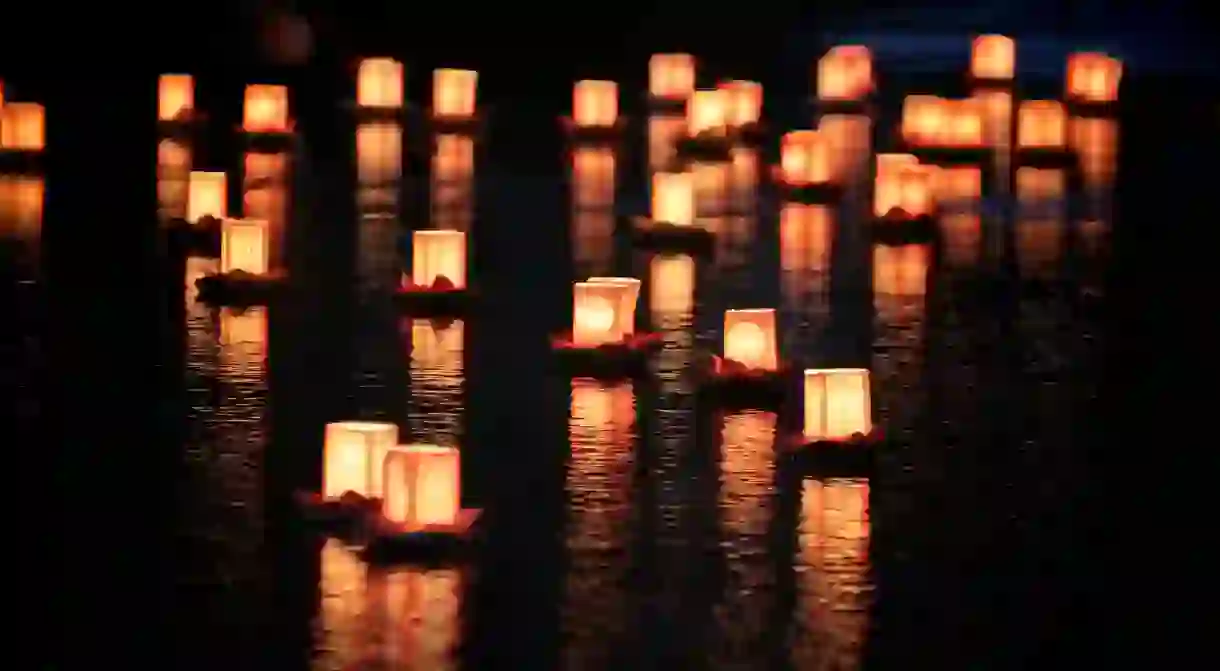A Brief History of Obon Festival

A Buddhist tradition celebrated in Japan for over 500 years, Obon is an annual three-day event held in honor of one’s ancestors, which sees families get together as the spirits visit household altars. More recently, the holiday has become a time for family reunions, as people return to their hometowns and revisit the graves of the deceased. We take a look at the cultural and spiritual significance of Obon, as well as the best places to witness the festival for yourself.
Origins
The exact origins of Obon are murky; the story behind the ritual is believed to have originated in India, then spread to China and other parts of South Asia, eventually making its way to Japan. In it, a disciple of Buddha uses supernatural powers to contact the spirit of his deceased mother. Upon realizing his mother had descended to the ‘Realm of Hungry Ghosts’ (in Buddhism, a ‘hungry ghost’ is a supernatural being suffering from an insatiable hunger for a particular thing, often grotesque), the disciple became distressed and asked the Buddha how to free his mother’s spirit from her pain. Buddha instructed him to prepare offerings for the Buddhist monks who were returning from a summer retreat. Upon doing so, his mother’s spirit was freed.
‘Obon‘ is the Japanese transliteration of the Sanskrit word ‘ullambana‘, which means ‘to hang upside down’ and implies unbearable pain and suffering. For the Japanese, the festival is held to free ancestors’ spirits of their pain. It is also a time for relatives to return to ancestral homes and visit and clean the graves of their ancestors.
The Obon festival
In order to guide the spirits of the dead back to their homes, family members hang lanterns in front of their home and make offerings at the household altar. At the end of the festival, the lanterns are released into the nearest body of water so the spirits can return to the spirit world.
The greatest spectacle of the three-day event is Bon Odori, a traditional folk dance performed during Obon to welcome the spirits of the dead. Each region of Japan has its own unique style of dance and music, often containing lyrics and messages representative of that culture and history of that region. For example, the Tanko Bushi (literally, ‘coal mining song’) of the Kyushu region consists of movements that resemble the work of coal miners, such as pushing carts or digging.

When and where to see the festival
Obon is held from 13-15 of either July or August, depending on the region. The most famous Obon festivals in Japan are Awa Odori (Tokushima, Shikoku), Daimonji Gozan Okuribi Fire Festival (Kyoto), Nagasaki Shoro Nagashi Festival (Nagasaki), and Hokkai Bon Odori (Mikasa, Hokkaido). For those looking to experience an all-night dance party, the Gujo Odori Festival in Gifu runs for 32 nights and is welcoming to all guests willing to participate.














